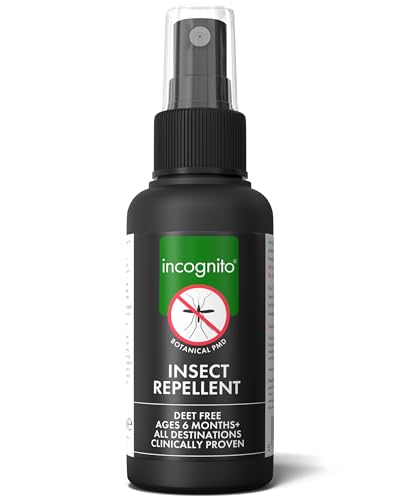Understanding Mosquito Repellents: How They Work and Why You Need Them
The Science Behind Mosquito Repellents
Mosquito repellents are specially formulated products designed to keep these pesky insects at bay. They work primarily by emitting scents that humans cannot detect but are unpleasant for mosquitoes. The active ingredients in these products interfere with the mosquito’s ability to find us by blocking their sensory receptors. This means that when we apply the repellent to our skin, mosquitoes are less likely to approach, allowing us to enjoy the outdoors without constant swatting and itchiness.
Why Protection Is Important
In addition to the annoyance of mosquito bites, they can also transmit various diseases. Knowing this, many people choose to include mosquito repellents in their outdoor activities. Whether it’s a family picnic, a camping trip, or simply time spent in the garden, applying a mosquito repellent can significantly reduce the risk of bites and the diseases they carry.
Types of Mosquito Repellents: Choosing the Right One for Your Needs
Different Forms Available
Mosquito repellents come in several forms, including sprays, lotions, wipes, and wearable devices. Sprays are the most common and can be applied directly to the skin and clothing. Lotions provide an alternative for those who prefer a thicker consistency. Wipes are convenient for travel and have the added benefit of being easy to apply without spills. You can also find wearable devices like clip-ons and wristbands that are infused with repellent, suitable for those who dislike applying products directly to the skin.
Active Ingredients To Consider
When choosing a mosquito repellent, it’s essential to check the active ingredients. Common ones include DEET, picaridin, and oil of lemon eucalyptus. DEET is well-known for its effectiveness and can provide lasting protection. Picaridin is a synthetic alternative that’s odourless and less greasy, making it appealing to many users. Oil of lemon eucalyptus is a natural option that some find effective, although it may require more frequent reapplication.
Application Tips: How to Effectively Use Mosquito Repellents
Applying at the Right Time
For maximum effectiveness, apply mosquito repellent before heading outdoors. This allows the repellent to dry and form a barrier on your skin. Be sure to cover all exposed areas, including behind the ears and on the backs of knees. If you’re wearing clothing, remember that some repellents can also be sprayed directly onto clothes, providing an additional layer of protection.
Reapplication for Continued Protection
The effectiveness of mosquito repellents can diminish over time due to sweat, humidity, or contact with surfaces. Therefore, we recommend reapplying the repellent every few hours, or sooner if you’re sweating heavily or have just been in the water. Always check the product instructions for specific reapplication guidelines, as some formulations offer longer-lasting protection.
Natural vs. Chemical: What You Should Know Before You Buy
Understanding Natural Options
Natural mosquito repellents, which often use essential oils, appeal to those who prefer to avoid synthetic chemicals. These options can be effective but may require more frequent reapplication compared to their chemical counterparts. Additionally, natural repellents might not provide the same level of protection in heavily infested areas, so it’s vital to analyze your specific needs before making a choice.
Weighing Chemical Effectiveness
On the other hand, chemical repellents tend to offer longer-lasting protection and have been thoroughly tested for safety and effectiveness. While some individuals have concerns about the safety of certain chemicals, many products available today have been developed to meet strict safety standards. If mosquitoes are particularly aggressive in your area or if you’re spending extended time outdoors, a chemical repellent could serve you better.
Additional Measures: Boosting Your Protection Against Mosquitoes
Creating a Mosquito-Free Environment
In addition to using mosquito repellents, we can take various measures to minimise mosquito exposure. This includes removing standing water around your home, as mosquitoes breed in stagnant water. Installing screens on windows and doors can also keep these insects from entering your living space.
Combining Strategies for Enhanced Protection
For maximum effectiveness, consider combining the use of repellents with protective clothing, such as long sleeves and pants. Light-coloured clothing can also be beneficial, as mosquitoes are often attracted to dark shades. By adopting a multi-faceted approach, we can enjoy the great outdoors with peace of mind, knowing that we’re doing our best to mitigate mosquito encounters.



























